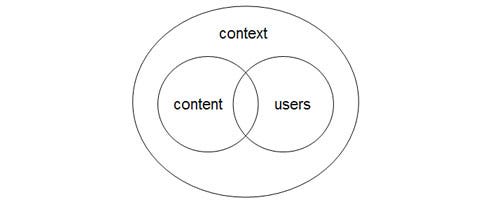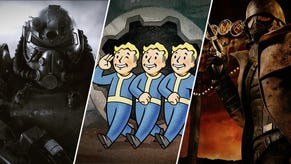Games news versus Price and Bleszinski - Why it's time for developers to man up
Last night, Insomniac's Ted Price claimed he was "misquoted" and his words from a recent EGM interview were taken "out of context" when reported by gaming news sites, calling for "the press" to focus on the bigger picture of an American legal issue instead of posting his words up as news.
Price joins Epic's Cliff Bleszinski as another high profile developer to recently claim he's been mistreated by the games media, both of whom have complained about the use of "context" in news reports.
I've wanted to write this piece for a long time. VG247 was one of the sites Bleszinski chose to publicly name in his "push back" against what he sees as a growing "tabloid" press sector earlier this year, and I never felt we got the chance to state our case.
In the meantime, though, and prompted by Price's post yesterday, my opinion on this matter has gone far beyond explaining our side in the reporting of a single story – I believe it's time to face down the likes of Bleszinski and Price on this subject because I think their views, while having legitimacy at their core, are largely ill-informed and driven almost purely by ego.
Firstly, let's take a look at the circumstances that put Bleszinski and Price at odds with the Modern Games Press.
Flashpoint
Bleszinski's first proper outburst on the issue of being selectively quoted was in May this year, and was based on this VG247 story, written by Joe Anderson and edited by myself. It was the headline, "Bleszinski: Heavy Rain has 'hideous' children," which got his goat. When he became aware of the story, he tweeted: "This was a JOKE people. Some gaming 'press' is becoming *very* tabloid these days. I LOVE Heavy Rain."
We had a bit of a behind-the-scenes scuffle with Epic PR on the matter, but we were all fine in the end. For the record, I'm a big Epic fan. I love the studio's games. Its macho nonsense is very fitting of VG247's core style, and Gears of War remains one of my favourite all-time titles.
I need to explain that Joe had very little experience at the time, and had just come from a stint at TheSixthAxis. I apologized to Cliff face-to-face about the story at E3 this year, as I felt he had a point, despite the fact the story was factually correct. I explained that we were working very hard on developing VG247's editorial, talking to him at a Microsoft aftershow event.
After the Heavy Rain kerfuffle had died down, Bleszinski next hit out at CVG, who published the following from an Xbox 360 World interview: "'Part of the problem is, technically, Japan just can't keep up with the US,' Cliffy said when asked whether Epic had plans to move into Japan, Korea and China."
The developer, again on Twitter, called foul.
"Internet tabloid alert: I said nothing about Japan not being able to keep up with the US regarding tech," he said, adding, "There are plenty of existing and upcoming Japanese titles that look amazing. I have nothing but the utmost respect for those devs.
"If this 'journalism' continues devs will only be able to recite fact sheets verbatim.
"Websites intentionally publish misquotes and out of context pullquotes to create forum flamewars which generates traffic and profit.
"Here’s another technique: you can say anything as long as you put a ? after it."
In this instance, Bleszinski really had been completely misquoted. Future put it down to a "production error" and made a full apology. What's worth noting here, though, was that Bleszinski claimed that websites made these sort of errors deliberately in order to make money.
Following that, Bleszinski talked to Eurogamer TV on the matter of games news at E3, as we'll discuss later, reiterating his belief that websites deliberately sensationalize selected quotes for financial reasons.
And most recently, he called out an Electronic Theater Eurogamer Expo report as being based on "total horseshit," after the site reported that it had been told the Gears 3 single-player component was "too buggy" to be shown at the event.
He went on to say the story contained a "silly quote," and told LazyGamer, the original subject of his ire, that it "shouldn't have reported it".
That's Cliff's press war up to now. Let's look at Ted.
This one's easy. Price told EGM recently that, “First and foremost, I think we have a world-class engine team. In particular, they focus heavily on using the PS3′s SPUs more effectively (in my opinion) than anyone else in the business.”
GamesThirst picked up the quote and ran it with the headline, “We’re Best on PS3 Insomniac Boasts”.
Price said in a blog post yesterday that the comments had been "taken completely out of context" and that he'd been "misquoted".
He added: "The original headline and the revised headline ('We Aim to Be Best on PS3') are not statements that I or anyone at Insomniac would ever say or would want implied.
"While we're proud of our games, we also have the greatest respect for our peers in this industry and are always grateful when our games are supported by our fans and media alike.
"Our goal is to make games people love, not to crow about how awesome we think we are. We’re also particularly harsh self-critics and are always looking for ways to improve ourselves, our processes and our games. As a result the web article really struck a nerve for me because it was so far off in describing who I am and who we are at Insomniac."
As far as I can gather, the quote from the article was actually correct, so I'm assuming the "misquoted" part of Price's complaint comes solely from the GamesThirst story's headline. I don't have a copy of the magazine in question, I'm afraid, so I can't check.
Price then went on to say that he believes "news sites" would better spend their time providing rolling commentary of the upcoming SCOTUS hearing in the US. We'll come onto that in a minute.
Let's try to put both this into perspective.
I believe Bleszinski and Price both felt the need to go public with their complaints about these stories because they think they're dealing with "the press". They're not. Bleszinski, at least, thinks people are exploiting his quotes for financial gain. They want to deal only with the guys who get paid well, allow them access to an audience of millions and will publish everything they tell them, but those people – the Game Informers and IGNs of our world – are only part of the story in 2010.
Whether they like it or not, Bleszinski and Price are dealing with the Modern Games Press. They're dealing with a movement that's 24-hour, low-budget and insane in its drive for traffic and popularity. They're dealing with an army of sites, mags, blogs, fanboys, kids and parents, an uncontrollable swathe of good hype, bad hype, professionalism and unprofessionalism that litters the internet all day every day, that has Digg groups in its IM clients in an effort to push for the front page, that batters Twitter and Facebook with everything it writes, that constantly fights for approvals, PVs and UUs.
Unwittingly, they've become the subjects of a word war.
A large component of the Modern Games Press doesn't give a f**k about money, and that's what makes it so genuinely mad. There is a community here that doesn't care about repercussions or "context". It's driven by the headline, the megaton. Man says PS3 is s**t? News. Resistance 3 billboard spotted on a film set? News. Retailer poster shows GTA IV 360 £5 cheaper than PS3 version? News.
Ted Price says his PS3 programmers are the best in the business? News.
I'd say VG247 status has shifted up to a place where we're staffed enough to care properly about our editorial and begin the achingly slow process of building "the vision," but in the early days - we're in our third year - we were as much involved in the traffic scrum as any. You can't understand it unless you've been a part of it, and that's what's making Bleszinski and Price's views look so horribly prehistoric. You know how a favourite developer line when talking about the press is that you can't understand games development unless you've made a game?
The door swings both ways.
The problems
I have three major problems with the stance Price and Bleszinski are taking here.
The first is, in my view, the most important: comments made by both developers appear to show a fundamental lack of knowledge about how the games news press actually works as a business.
Speaking to Eurogamer TV at E3 this year, Bleszinski said, "For every journalist that I'd trust with information, or that I would, you know, catch drunk at two in the morning in a club and have a good time with, there's ones that I'm, like, 'OK, I didn't really know that he knew that.' People are people, and unfortunately we're at a situation where certain websites like to grab any quote that they can and put it up in a very large font, and even out of context. And then, of course, they'll correct it inside and say how it actually was, and then let the flame war ensue in the comments. What happens is that they get all the click-throughs from the 400 comments, they get all the advertising revenue, so therefore it's a direct line where the headline means money to them.
"That said, there are still a lot of amazing journalists that do their homework and ask the legitimate questions that are very, very fair. I'm just pushing back against the complete misquotes and the fabrications."
The key quote there is, "It's a direct line where the headline means money to them." Bleszinski apparently believes that there's a direct correlation between games sites winding up their communities and getting paid.
I'm sure there are many site-owners reading this saying, "I wish."
For the record, there is no magic page-view shop where I go at the end of the month and cash in my traffic. Making money in this business is extremely hard. I'm not going to go into details about how we sell ads on VG247 for competitive reasons, but I promise you that Bleszinski's belief here is out-and-out wrong.
Of course, there are plenty of online advertising systems that will fill a site's traffic with ads, and yes, this means that the more pages you serve, the more ads are served. These creatives, though, will almost certainly be "cost-per-click," or CPC. That means the site-owners gets absolutely nothing unless someone clicks on an advert. You can have a billion users looking at your Bupa ads, but seeing as how no one's going to click on them you may as well not bother. Any small site-holder will tell you the same thing.
The other end of the ad scale is CPM-based, or "premium". This means the buyer takes a block of impressions for a set cost. They're not sold solely on raw numbers but rather a whole range of criteria. As I said, I can't go into specific detail, but I can tell you categorically that Cliff Bleszinski has got this wrong. He's right in that traffic is important, but it's clear he has no real insight in the machinations of the business of a modern games site.
Ted Price appears to be suffering from a similar delusion. In his blog post yesterday, Price said that, instead of quoting him from EGM interviews, he wants the games news media to focus attention on the impending SCOTUS decision in the US, that, if upheld, could make it illegal to sell videogames to minors in California. The law was signed previously by Governator Arnold Schwarzenegger, but it was never applied and was quickly thrown out on constitutional grounds. It will be reconsidered by the US Supreme Court on November 2, but it's unlikely to pass as it'll require the Court to create an exception to the US Constitution's First Amendment.
Price said, "I challenge the news sites to carry the flag on this issue, to make it a key and ongoing story. Because ultimately whatever decision is made will affect them too."
Now, I'm not saying that SCOTUS isn't important. It is. But, as with Bleszinski, Price has got the business and priorities of the huge majority of the Modern Games Press flat-out wrong.
The site Price claims he was misquoted by in the first place, GamesThirst, is a consumer-facing blog. It carries no premium ads at all. In fact, the only promotional space I can see on there, looking at it today, is given over to a network leaderboard and an ad for "Baby Butt," obviously also from a network. These creatives make virtually no money. It's fair to assume whoever runs GamesThirst doesn't make a living from it.
Price said that he wants sites, presumably like GamesThirst, to treat SCOTUS "with the gravity it deserves – giving us frequent updates, interviewing those involved, opining on the outcome and explaining the consequences of a decision that goes against gamers."
GamesThirst is very much part of the Modern Games Press. It's a blog, written by what looks to be two guys, and seems to be a part-time thing. It cannot, nor would it ever, focus professional press attention on something like SCOTUS. There are only two authors visible on the homepage. Doing what Price is suggesting costs money. Seeing as GamesThirst doesn't appear to generate any, how can it face in Price's chosen direction?
Maybe Price was talking about larger sites picking up the story and reporting on SCOTUS in more detail. It was an open "challenge," so that's a fair assumption. He was probably just seeking to highlight the issue (or deflect attention away from his quote).
But he said "news sites," and GamesThirst exists to publish "news gamers thirst for," and considering this is the site that kicked Ted into action in the first place, it's safe to assume he's expecting GamesThirst to stop sticking up whatever it likes and start talking politics. We don't know for certain because Price doesn't give specific names in his blog post.
What we do know is that to ask a site like GamesThirst, and the dozens of others like it all over the web, to pay attention to SCOTUS, displays a fundamental misunderstanding of the Modern Games Press.
How it actually works
Let's help Ted out. Here's the whistlestop tour.
The Modern Games Press is split into various sub-sections, all of which operate in differing ways depending on their goals. All of it, whether print or online, carries game-related news in some shape or form.
The most important split is between consumer and trade. VG247 is a professional consumer news site. We talk about games, the business of games, development, E3, review scores, and all the rest of it. We have a prosumer audience and we generate revenue through ads. Our UK consumer competition consists of sites like Videogamer.com, CVG, Eurogamer, IGN UK, Gamespot UK, NowGamer, Gamerzines and whoever else. Our American competition is mainly Kotaku, Joystiq, Destructoid, GameTrailers, and so on.
Trade sites talk, as you'd expect, to the trade. Notables are GamesIndustry, IndustryGamers, Gamasutra, MCV, GamePolitics, and so forth.
After that, you have a ton of unprofessional sites – and by that I mean they're probably part-time affairs that don't generate substantial revenue. In here would be GamesThirst; VG247 freelancer Joe Anderson's Made2Game; Johnny Cullen's old site, GoOnl!ne; and all the rest. Just watch N4G every day and you'll get a good idea of who's in this bit.
And then you have consumer print. Future's the last great bastion of games mags in the UK, publishing OXM, OPM and ONM as well as other publications like PSM3. CVG, also Future-owned, pimps all these heavily in its news content, which is where that Bleszinski Japan quote came from in the first place. There's also Imagine Publishing in Bournemouth, with RetroGamer, GamesTM, 360 and all the rest, pulled together online by NowGamer.
Consumer print in the US is ruled by Game Informer, but EGM's just relaunched as well.
And don't forget trade print. MCV and Develop are the biggies in the UK.
These are the main groups. I've missed many, many publications here, but that's a broad stroke. Now, logically, the only sites and mags from this lot to even consider putting considerable focus on SCOTUS would be the trade guys because they generate revenue by talking about trade issues. All the consumer chaps survive by appealing to consumers and either selling ads based on their attracted audience or, in the case of print, combining ad sales with a cover price. They don't talk about politics on an ongoing basis unless there's a mature story they feel they need to relay to consumers. VG247 might carry less mature SCOTUS pieces because its coverage bleeds into trade quite often, but running coverage on a political issue like this is pretty much reserved for the likes of GamePolitics.
The consumer guys talk to consumers. Is Ted asking them to take on heavy trade coverage? It really does seem so. Will they do it? Of course not. They may report on the decision itself, but ongoing interviews, opinion pieces and the like? I'd be surprised, put it that way.
I'm not saying consumer sites don't cover trade issues. They do. EGTV's recent look at the subjects of games education and legislation in the UK is proof of that. But to call on "news sites" to flock to a trade issue en bloc is simply unrealistic in a business sense. It's not what the vast majority of them do.
It seems that Cliff and Ted don't really understand how "news sites" operate financially and what motivates them professionally. How, then, can they complain about the way they operate at all?
Some more problems
The other two problems I have with Price and Bleszinski's complaints are interlinked. Both of these developers are very experienced and are well-used to dealing with the press as a PR tool. I've interviewed Cliff Bleszinski on several occasions, and, no doubt, you've seen him talking in videos of press conferences and interviews with other sites. Cliff's a passionate, funny, clever man. He's also "a bit of a rock star". He likes to joke and shock both on and off the record, and he knows how to work with the press on generating the "right" sort of editorial for the business of making games. He's a dream interview, precisely because he knows exactly how to give journalists knock-out quotes on major IPs and big issues.
Cliff Bleszinski is anything but stupid.
I'll give you an example. In late 2008, Microsoft held a press junket in London to show off Gears of War 2. Bleszinski was the star attraction, and did group interviews. I spoke to him in a session with a bunch of other European sites, and we sat in a circle in a hotel room asking questions in turn.
As is often the case in this sort of situations, you get very nervous kids - I'm nearly 40, for the record - asking benign stuff that doesn't land decent quotes. I was starting to get a little anxious that we weren't going to get any proper value, so I asked Bleszinski about PS3 and whether or not he thought Gears 2 could have been a better game if he'd been given the Sony console's extra power.
Before I go on, I want to look at my question and the motives for asking it. It's important. I'm not going to bullshit anyone: I was after a headline, and I was trying to get it by asking Bleszinski to say something contentious about differences between PS3 and 360. VG247 was much smaller then than it is now, and I was looking for a story with impact that would be syndicated by other sites and get us noticed. I was taking a punt on Bleszinski's personality, gambling one of my few questions on whether or not he would meet me halfway with some trademark showboating.
I doubt I would have asked the question in the same way now, but I would still want to know what he thinks about PS3, especially in the context of Gears of War. News is conflict, and everything is news. You may wonder why mainstream news sites always focus on "the bad stuff": it's because bad stuff makes for the "best" news. Why do US TV news choppers shadow police chases? It's because it's exciting and it's a raw depiction of conflict. It's compelling in a base sense and drives viewers. Why do paparazzi take pictures of celebrities on holiday, or in their homes? It's because by invading their privacy, the viewer is given a raw sense of conflict. The voyeuristic intrusion puts the user in conflict with the personality – "I shouldn't be looking at this" - and the image becomes compelling. Why do "quality" news organizations like the BBC and CNN focus so much of their attention on wars, disaster, famine, financial difficulty, strikes, budget-cutting, elections, crime, racism and so on? It's because these issues are conflict-based and therefore naturally seen as more "important" to their viewers than those that aren't. It's for exactly this reason that there's such an outcry if major "human" stories don't get the press people think they deserve; Price asked for more coverage on a big conflict issue in his blog post, right?
News is conflict.
I can't speak directly for Cliff, but I'm going to go ahead and assume he's fully aware of this, based on the answer he gave:
“I hate the f**king controller,” he told VG247. “I’m sorry, I can’t stand the PS3 controller. I love the Blu-ray player.”
Bleszinski added that PS3 did have some good games, though, whether he likes the controller or not.
“I think there are some great games for PS3,” he said. “I think Metal Gear’s great. Heavenly Sword was great. But at the same time, right now, I’m always working on Xbox with Gears.”
The PR conducting the interview, a nice lady called Kate, went white as a sheet. The "f**king controller" quote was headlined on many games sites, as Cliff knew it would be.
A single quote, taken from an interview, and headlined alone without supporting context. Did Cliff or Microsoft complain? Of course not. Why? Let's go back to that in a second.
Pirate ships, planks, big ol' waves
Now let's look at Price. I've never interviewed Ted face-to-face, but I did talk to him on the phone earlier this year when the Insomniac-EA Partners deal was announced. EAP boss David DeMartini was also on the line, as were, if I recall correctly, one US and one UK PR.
There was no flamboyance with Price at all. He came across as being serious. Everything he said was on the line, and at one point he literally gave me a monosyllabic answer, tellingly when I tried to get a quote on his aspirations for 360 development. Ted Price isn't stupid either.
He was hard work, but he was very professional. He knew what he wanted to say and he never deviated from his course. You develop a sense of what you can and can't headline from interviews if you want to stay onside with someone, and I was, very deliberately, given nothing to remove.
My point is that Price maintained a very high level of control over the press surrounding the announcement. He knew what he wanted to get from it, and he succeeded.
The reason neither party complained about the use of their quotes in these instances is because we used them in a way that was advantageous to the developers' games, studios and egos. It was the outcome they wanted. In the Bleszinski case, he said in front of a group of journalists that he hated the "f**king" PS3 controller. That means, "You can say I hate PS3's controller." Price wanted the coverage surrounding his EAP partnership to stick rigidly to the hard information given in the press release, with only a little expansion. Both these examples showed the men as being in control of their opinions and their respective situations.
Both Bleszinski and Price only complained about "the press" when they lost control of it in a specific situation and were displayed in what they perceived to be a negative light. This is hypocritical. Both men are demonstrably aware of how the press can be used as a tool for their own ends, and yet both men have been highly critical of press outlets when stories haven't turned out as they'd like.
My final problem with their stance, then, is that it seems logical that the remarks in question are driven by anger and ego, not primarily from a desire to see the games press better itself.
Neither developer raised these issues before they felt they were slighted by the press, a fact which, unfortunately, damages their cases. I personally agree that the games press does need to become more professional, particularly in the reporting of news, but it seems in this case that Ted Price and Cliff Bleszinski only cared about any of this when they felt their quotes were taken out of context.
I don't believe the whole "focus on the bigger issues" thing has anything to do with these outbursts. I believe Ted Price and Cliff Bleszinski are, very simply, p**sed off about the way they've been portrayed in these instances, and I believe they said things they probably regret having seen them stripped away of any caveats. I believe they feel they're fighting personal corners.
It's worth noting that both Bleszinski and Price delivered their challenges to the press outside of the normal PR channels. Bleszinski's a notorious Twitter-user, and this is where he spoke up about both the VG247 and CVG stories. Price chose to manage his message on Insomniac's blog. Again, this just adds to the case that these are thorns in the sides of personalities, not their businesses.
Calling for an increase of professionalism in the press on a platform of hypocrisy and ego, then, just seems transparent. If Bleszinski and Price were serious about making games journalism a better place, why are they simply attacking it on a personal level, throwing around accusations of a lack of professionalism and complaining that gamers should be more interested in politics than PlayStation 3 development? Granted, they both do have points at the cores of their arguments, and you definitely could argue that they'd been misrepresented in some of these examples, but I can't help feeling that Price's post read like a motorist who'd been stopped for speeding, grumbling that the police "should be out catching murderers."
Please don't get me wrong. I have nothing against Cliff and Ted. I respect both of them massively. I play their games, and I report on their work. They're key creatives in a booming industry and they're about as "important" as anyone in games trade probably ever will be.
But if you're serious about making the games press a better place, guys, then shelve all this ill-considered ranting. Engage the press openly, accept the media instead of fighting it, and debate the matter. You have a right to be reported on accurately, but you certainly don't have the right to be reported on positively. We have the right to report on you as we see fit. That's our business. Stop spitting the dummy when you see the things you said handled in a way you don't like. Man up. If you said the children in Heavy Rain were "hideous," then accept that you said it, joke or not. If you said that your programmers exploit PS3's SPUs "more effectively (in my opinion) than anyone else in the business," then that's what you said. Just deal with it. Stop the martyr act. It's helping no one.
We all want games journalism to be better. We all want games to be better. We all love games, and everything surrounding games, and we're all sailing through heavy seas on the same giant, unruly, piratical games boat.
Let's just see if we can get to dock without either games development or journalism being made to walk the plank.










